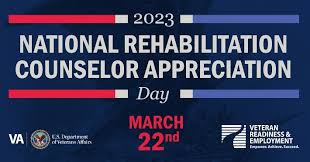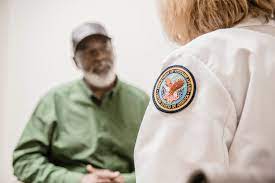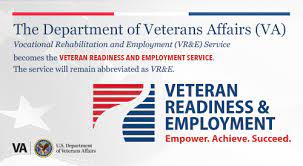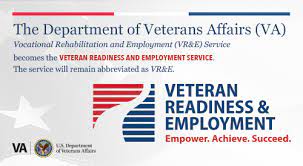Understanding VA Vocational Rehabilitation Benefits
VA Vocational Rehabilitation benefits are designed to help veterans with service-connected disabilities prepare for, find, and maintain suitable employment. This program offers a range of services to eligible veterans to enhance their job skills and abilities.
Eligibility for VA Vocational Rehabilitation benefits is determined by the Department of Veterans Affairs based on the severity of the veteran’s service-connected disability and their ability to benefit from vocational rehabilitation services.
Services Offered
The VA Vocational Rehabilitation program provides a variety of services, including:
- Vocational counseling and guidance
- Job training and education assistance
- Resume development and job search assistance
- Assistive technology and accommodations in the workplace
- On-the-job training and apprenticeships
Benefits
By participating in the VA Vocational Rehabilitation program, veterans can gain valuable skills and training that can lead to meaningful employment opportunities. The program aims to help veterans achieve greater independence and financial stability through gainful employment.
Additionally, veterans may be eligible for financial support during their participation in the program, including a monthly subsistence allowance based on their attendance and progress.
How to Apply
To apply for VA Vocational Rehabilitation benefits, eligible veterans must work with a VA counselor to develop an individualized rehabilitation plan that outlines their career goals and the services needed to achieve them. Veterans can contact their local VA office or visit the VA website for more information on how to apply.
In conclusion, VA Vocational Rehabilitation benefits offer valuable support to veterans with service-connected disabilities seeking employment opportunities. By taking advantage of these services, veterans can enhance their skills, build successful careers, and improve their quality of life.
Unlocking Your Potential: A Guide to VA Vocational Rehabilitation Benefits and Services
- Who is eligible for VA Vocational Rehabilitation benefits?
- How do I apply for VA Vocational Rehabilitation benefits?
- What types of services are offered through the VA Vocational Rehabilitation program?
- Can I receive financial support while participating in the VA Vocational Rehabilitation program?
- What are the criteria for determining eligibility for VA Vocational Rehabilitation benefits?
- Is there a time limit for using VA Vocational Rehabilitation benefits?
- Can veterans with non-service-connected disabilities qualify for VA Vocational Rehabilitation benefits?
- Are there specific job training programs available through the VA Vocational Rehabilitation program?
- How can I request accommodations in the workplace through VA Vocational Rehabilitation?
Who is eligible for VA Vocational Rehabilitation benefits?
To be eligible for VA Vocational Rehabilitation benefits, individuals must be veterans with a service-connected disability rating of at least 10% or a memorandum rating of 20% or more from the Department of Veterans Affairs. Additionally, veterans must apply for Vocational Rehabilitation within 12 years of their discharge from active duty military service. Eligibility is determined based on the severity of the service-connected disability and the veteran’s potential to benefit from vocational rehabilitation services. It is important for eligible veterans to work with a VA counselor to develop an individualized rehabilitation plan tailored to their specific needs and career goals.
How do I apply for VA Vocational Rehabilitation benefits?
To apply for VA Vocational Rehabilitation benefits, eligible veterans need to initiate the process by working closely with a VA counselor. The first step involves developing an individualized rehabilitation plan that outlines the veteran’s career goals and the specific services required to achieve them. Veterans can reach out to their local VA office or visit the VA website for detailed instructions on how to start the application process. By collaborating with a VA counselor and following the outlined steps, veterans can kickstart their journey towards gaining valuable skills and training through the VA Vocational Rehabilitation program, ultimately paving the way for meaningful employment opportunities.
What types of services are offered through the VA Vocational Rehabilitation program?
The VA Vocational Rehabilitation program offers a range of valuable services to eligible veterans with service-connected disabilities. These services include vocational counseling and guidance to help veterans identify suitable career paths, job training and education assistance to enhance their skills and qualifications, resume development and job search assistance to support their employment search, assistive technology and workplace accommodations to ensure a successful transition into the workforce, as well as on-the-job training and apprenticeships opportunities to gain practical experience in their chosen field. By providing these comprehensive services, the VA Vocational Rehabilitation program aims to empower veterans with disabilities to achieve their career goals and improve their employment prospects.
Can I receive financial support while participating in the VA Vocational Rehabilitation program?
Yes, eligible veterans participating in the VA Vocational Rehabilitation program may receive financial support to help cover living expenses during their training and rehabilitation. This financial assistance comes in the form of a monthly subsistence allowance, which is based on the veteran’s attendance and progress in the program. The subsistence allowance aims to provide some financial stability to veterans as they work towards gaining new skills and preparing for suitable employment opportunities. Veterans can inquire with their VA counselor about the specific details and eligibility requirements for receiving financial support while participating in the VA Vocational Rehabilitation program.
What are the criteria for determining eligibility for VA Vocational Rehabilitation benefits?
The criteria for determining eligibility for VA Vocational Rehabilitation benefits are based on the severity of the veteran’s service-connected disability and their potential to benefit from vocational rehabilitation services. The Department of Veterans Affairs evaluates each applicant individually to assess their ability to participate in and benefit from the program. Eligible veterans must have a service-connected disability that impacts their ability to secure and maintain employment. Additionally, veterans must work with a VA counselor to develop an individualized rehabilitation plan that outlines their career goals and the services needed to achieve them. Meeting these criteria is essential for veterans to qualify for VA Vocational Rehabilitation benefits and receive the support they need to pursue meaningful employment opportunities.
Is there a time limit for using VA Vocational Rehabilitation benefits?
There is no specific time limit for using VA Vocational Rehabilitation benefits. The duration of the program varies for each individual and is based on factors such as the severity of the veteran’s service-connected disability, their progress in the program, and their vocational goals. The goal of VA Vocational Rehabilitation is to help veterans prepare for, find, and maintain suitable employment, so the program continues until the veteran has achieved their vocational objectives or until it is determined that further services are no longer necessary. Veterans are encouraged to work closely with their VA counselor to develop a personalized rehabilitation plan that outlines the timeline for utilizing their benefits effectively.
Can veterans with non-service-connected disabilities qualify for VA Vocational Rehabilitation benefits?
Veterans with non-service-connected disabilities may still qualify for VA Vocational Rehabilitation benefits under certain circumstances. While the primary focus of the program is to assist veterans with service-connected disabilities, veterans with non-service-connected disabilities may be eligible if they have an employment handicap that is a substantial barrier to securing and maintaining gainful employment. Eligibility for VA Vocational Rehabilitation benefits for veterans with non-service-connected disabilities is determined on a case-by-case basis, taking into consideration factors such as the severity of the disability and the veteran’s ability to benefit from vocational rehabilitation services. Veterans interested in exploring their eligibility for these benefits should contact their local VA office for more information and guidance on the application process.
Are there specific job training programs available through the VA Vocational Rehabilitation program?
Yes, the VA Vocational Rehabilitation program offers specific job training programs to help eligible veterans with service-connected disabilities prepare for employment. These programs are tailored to meet the individual needs and career goals of each veteran. Job training options may include vocational courses, on-the-job training, apprenticeships, and other skill-building opportunities. By participating in these specialized programs, veterans can acquire the necessary skills and knowledge to pursue meaningful employment in fields that align with their interests and abilities.
How can I request accommodations in the workplace through VA Vocational Rehabilitation?
When seeking accommodations in the workplace through VA Vocational Rehabilitation, veterans can request support by working closely with their VA counselor. The process typically involves discussing specific needs and challenges related to their service-connected disability, as well as identifying the accommodations that would help them succeed in their job. The VA counselor will assist in evaluating the necessary workplace adjustments and coordinating with employers to implement these accommodations effectively. By communicating openly with their VA counselor and employer, veterans can ensure that they receive the necessary support to thrive in the workplace and achieve their career goals.




